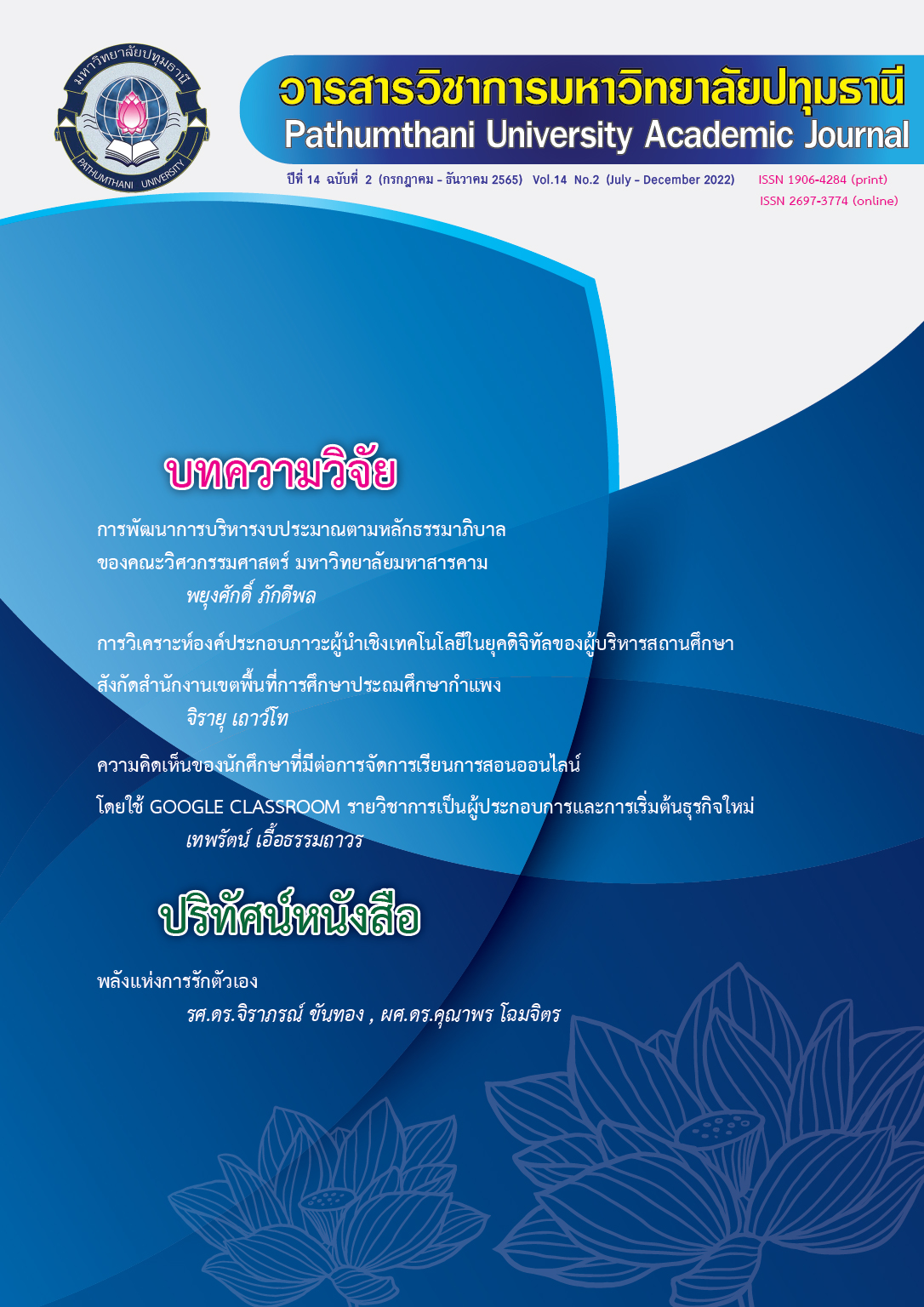PROJECT TO STUDY AND DEVELOP INDICATORS OF GOOD GOVERNANCE: VALUE FOR MONEY INDICATOR
Keywords:
Indicators, Good Governance , Value for Money IndicatorAbstract
The study’s aims were to update the value for money indicator and to give tools for other agencies to assess their own value for money. The research methodology entails a review of the literature on value for money at the international and Thai levels in order to collaboratively integrate, analyze, synthesize, and apply concepts, theories, principles, and value for money indicators that are appropriate for use in Thai society, as well as defining the components’ indicators.
The findings indicated that value for money assessment must be a systematic process that begins with project design or planning and continues through activity execution, completion, and evaluation. The first aim of this study is to devise an updated value for money indicator. This indicator will be comprised of four essential indicators: economy, efficiency, effectiveness, and equity. The second aim of this study is to provide tools for agencies to access their own value for money. This will be done by converting the four major indicators into a set of questions that each has a score that can be assessed. These scores will be combined and the average of these scores will provide the agency’s final value for money score.
Due to limited resources, it is recommended that good governance is indispensable to the principle of value for money, and that public-private partnership activities emphasize public-private partnerships, thereby focusing on real value and requiring a cost-effective evaluation prior to, during, and after the completion of the project. Most significantly, the project’s implementation must find the balance between economy, efficiency and effectiveness. Additionally, it is spread and, over time, reaches the true target audience.
References
เพลินตา ตันรังสรรค์. (2560). หลักธรรมาภิบาลการบริหารกิจการบ้านเมืองที่ดี (Good Governance). ศูนย์บริการข้อมูลด้านกฎหมายและหน่วยงานประสานงานวุฒิสภา. [ออนไลน์] เข้าถึงได้จาก http://www.senate.go.th/lawdatacenter/ modules.php?name=News_file=articalessid=508
มานวิภา อินทรทัต. (2549). คู่มือเทคนิคและวิธีการบริหารจัดการสมัยใหม่ตามแนวทางการบริหารกิจการบ้านเมืองที่ดี: การประเมินความคุ้มค่า. กรุงเทพมหานคร : สำนักงานคณะกรรมการพัฒนาระบบราชการ.
_______. (2561). หลักความคุ้มค่า. ใน ถวิลวดี บุรีกุล (บรรณาธิการ), หลักธรรมาภิบาล: จากแนวคิดสู่การปฏิบัติในสังคมไทย (หน้า 277-316). กรุงเทพมหานคร : สำนักวิจัยและพัฒนา สถาบันพระปกเกล้า.
สำนักงานคณะกรรมการพัฒนาระบบราชการ. (2552). คู่มือการจัดระดับการกำกับดูแลองค์กรภาครัฐตามหลักธรรมาภิบาลของการบริหารกิจการบ้านเมืองที่ดี (Good Governance Rating). [ออนไลน์] เข้าถึงได้จาก http://www.oic.go.th/FILEWEB/CABINFOCENTER7/DRAWER041/GENERAL/DATA0000/00000090.PDF
Better Evaluation. (2014). Value for money [Online]. From:http://betterevaluation.org/evaluation-option/value_for_money.
Department for International Development. (2011). Indicator and VFM in Governance Programming. [Online]. From: http://r4d.dfid.gov.uk/PDF/ Outputs/Mis_SPC/60797_Governance Indicators VFM Note FINAL.pdf
The World Bank Group. (2015). Worldwide Governance Indicator (WGI). [Online]. From: http://worldbank.org/governance/wgi/index.asp#doc
The United Nations Economic and Social Commission for Asia and the Pacific (UNESCAP). (2005). What is Good Governance?. [Online]. From: http://www.unescap.org/sites/default/ files/good_governance.pdf.
United Nation Development Programme (UNDP). (1997). Characteristic of Good Governance. [Online]. From: http://www.gdrc.org/u-gov/g-attributes.html.
Downloads
Published
How to Cite
Issue
Section
License
Copyright (c) 2022 มานวิภา อินทรทัต

This work is licensed under a Creative Commons Attribution-NonCommercial-NoDerivatives 4.0 International License.
บทความที่ได้รับการตีพิมพ์เป็นลิขสิทธิ์ของวารสารมหาวิทยาลัยปทุมธานี
ข้อความที่ปรากฎในบทความแต่ละเรื่อง เป็นความคิดเห็นส่วนตัวของผู้เขียน กองบรรณาธิการไม่จำเป็นต้องเห็นด้วยเสมอไป และไม่มีส่วนรับผิดชอบใด ๆ ถือเป็นความรับผิดชอบของผู้เขียนแต่เพียงผู้เดียว



